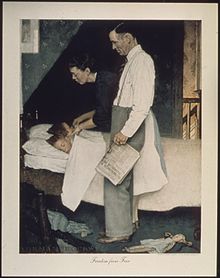
Aung San Suu Kyi, sometimes abbreviated to Suu Kyi, is a Burmese politician, diplomat, author, and a 1991 Nobel Peace Prize laureate who served as State Counsellor of Myanmar and Minister of Foreign Affairs from 2016 to 2021. She has served as the general secretary of the National League for Democracy (NLD) since the party's founding in 1988 and was registered as its chairperson while it was a legal party from 2011 to 2023. She played a vital role in Myanmar's transition from military junta to partial democracy in the 2010s.

The Four Freedoms were goals articulated by U.S. President Franklin D. Roosevelt on Monday, January 6, 1941. In an address known as the Four Freedoms speech, he proposed four fundamental freedoms that people "everywhere in the world" ought to enjoy:
- Freedom of speech
- Freedom of worship
- Freedom from want
- Freedom from fear

Myanmar operates de jure as a unitary assembly-independent republic under its 2008 constitution. On 1 February 2021, Myanmar's military took over the government in a coup, causing ongoing anti-coup protests.

The Universal Declaration of Human Rights (UDHR) is an international document adopted by the United Nations General Assembly that enshrines the rights and freedoms of all human beings. Drafted by a UN committee chaired by Eleanor Roosevelt, it was accepted by the General Assembly as Resolution 217 during its third session on 10 December 1948 at the Palais de Chaillot in Paris, France. Of the 58 members of the United Nations at the time, 48 voted in favour, none against, eight abstained, and two did not vote.
Standard of living is the level of income, comforts and services available, generally applied to a society or location, rather than to an individual. Standard of living is relevant because it is considered to contribute to an individual's quality of life. Standard of living is generally concerned with objective metrics outside an individual's personal control, such as economic, societal, political and environmental matters – such things that an individual might consider when evaluating where to live in the world, or when assessing the success of economic policy.
The Sakharov Prize for Freedom of Thought, commonly known as the Sakharov Prize, is an honorary award for individuals or groups who have dedicated their lives to the defence of human rights and freedom of thought. Named after Russian scientist and dissident Andrei Sakharov, the prize was established in December 1988 by the European Parliament.

The Second Bill of Rights or Bill of Economic Rights was proposed by United States President Franklin D. Roosevelt during his State of the Union Address on Tuesday, January 11, 1944. In his address, Roosevelt suggested that the nation had come to recognise and should now implement, a second "bill of rights". Roosevelt argued that the "political rights" guaranteed by the Constitution and the Bill of Rights had "proved inadequate to assure us equality in the pursuit of happiness". His remedy was to declare an "economic bill of rights" to guarantee these specific rights:
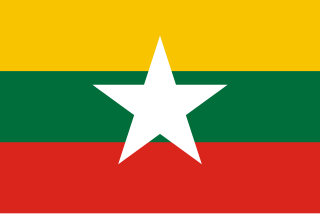
The National Coalition Government of the Union of Burma was an administration which claimed to be the government in exile of Burma (Myanmar). It had its headquarters in Rockville, Maryland, United States. It was formally established in December 1990, with Sein Win as its first prime minister. It was dissolved in September 2012.
Freedom from Fear is both an essay by Aung San Suu Kyi, and a book of the same name comprising a collection of her essays published in 1991.
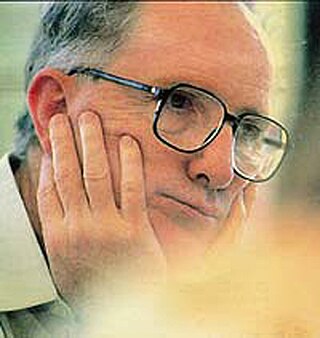
Jack Healey is an American human rights activist, author and the former director of Amnesty International USA. He is best known as the organizer of Amnesty's benefit concerts in the 1980's featuring bands like U2, the Police, Peter Gabriel, Bruce Springsteen, Sting, Sinead O’Connor, Bob Dylan, Santana, Tracy Chapman and others.
The Universal Declaration of Human Rights was drafted between early 1947 and late 1948 by a committee formed by the United Nations Commission on Human Rights. Further discussion and amendments were made by the Commission on Human Rights, the Economic and Social Council and the General Assembly of the United Nations.
Alexander Myint San Aung Aris is the elder son of Aung San Suu Kyi and Michael Aris. He is also a grandson of Aung San, who is credited with achieving the independence of Myanmar. He has been representing his mother, who has been detained by the military junta for years; he accepted the Nobel Peace Prize for her, and on many other awards and occasions, he has represented her.
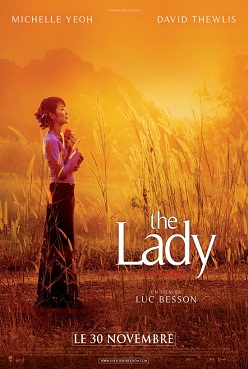
The Lady is a 2011 British biographical film directed by Luc Besson, starring Michelle Yeoh as Aung San Suu Kyi and David Thewlis as her late husband Michael Aris. Yeoh called the film "a labour of love" but also confessed it had felt intimidating for her to play the Nobel laureate.
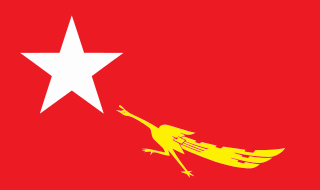
The 2011–2015 Myanmar political reforms were a series of political, economic and administrative reforms in Myanmar undertaken by the military-backed government. These reforms include the release of pro-democracy leader Aung San Suu Kyi from house arrest and subsequent dialogues with her, establishment of the National Human Rights Commission, general amnesties of more than 200 political prisoners, institution of new labour laws that allow labour unions and strikes, relaxation of press censorship, and regulations of currency practices. As a consequence of the reforms, ASEAN has approved Myanmar's bid for the chairmanship in 2014. United States Secretary of State Hillary Clinton visited Myanmar on 1 December 2011, to encourage further progress; it was the first visit by a Secretary of State in more than fifty years. United States President Barack Obama visited one year later, becoming the first US president to visit the country.
Brigadier-General Myo Thant was a senior member of the military government of Burma in the 1990s, holding the position of Minister of Information.
Freedom from fear is one of the Four Freedoms described by U.S. president Franklin D. Roosevelt.
The Special Envoy of the Secretary-General on Myanmar is a special Representative of the Secretary-General of the United Nations created in 2018 to respond to the Rohingya genocide starting in August 2017 and its effects in Myanmar. According to the mandate established by the UN General Assembly in its resolution 72/248 in 2017, the Special Envoy "works in close partnership with all stakeholders including local communities and civil society, and regional partners, notably the Government of Bangladesh and the Association of Southeast Asian Nations (ASEAN), regional countries, and the broader membership of the United Nations."
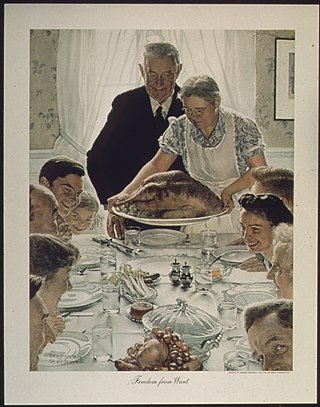
The right to an adequate standard of living is a fundamental human right. It is part of the Universal Declaration of Human Rights that was accepted by the General Assembly of the United Nations on December 10, 1948.
Everyone has the right to a standard of living adequate for the health and well-being of him/herself and of his/her family, including food, clothing, housing and medical care and necessary social services, and the right to security in the event of unemployment, sickness, disability, widowhood, old age or other lack of livelihood in circumstances beyond his/her control.
Freedom of the press in Myanmar refers to the freedom of speech, expression, right to information, and mass media in particular. The media of Myanmar is regulated by the law of Myanmar, the News Media Law which prevent spreading or circulating media bias. It also determines freedom of expression for media houses, journalists, and other individuals or organisations working within the country. Its print, broadcast and Internet media is regulated under the News Media Law, nominally compiled by the International Covenant on Civil and Political Rights and international standards on freedom of expression.

Myanmar–South Korea relations are the bilateral relations between the Republic of the Union of Myanmar and the Republic of Korea. The two countries established their diplomatic relations on 16 May 1975.
